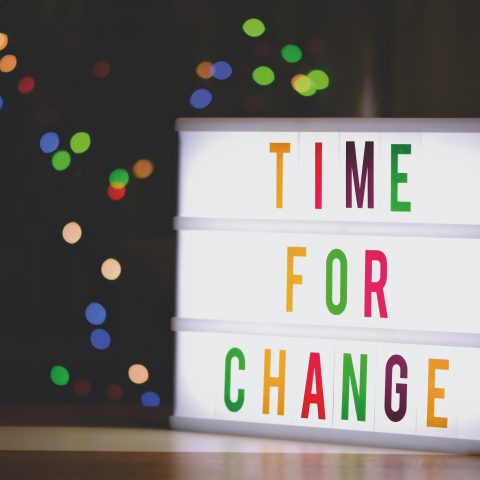1. What is happening?
It’s End of Life (EoL) for Drupal 7. If your site still runs on Drupal 7, we’re here to answer all of your questions about what that means. The frequently asked variety.
2. What a weird term, ‘EoL’. What does EoL mean?
‘EoL’ stands for ‘end of life’. It means that the Drupal CMS your site runs on has moved on to more advanced versions. Drupal 7 will no longer be actively developed with new features or security patches by the Drupal community.
3. When is it happening?
Drupal 7 will officially reach EoL in November 2023 (extended due to the impact of the COVID-19 pandemic, D7 EoL was originally slated for Nov 2021).
4. Why is it happening?
You might be familiar with Microsoft operating systems (like Windows 95 or XP) reaching their EoLs: constant development is being done to make sure that these platforms are both fit-for-purpose and as robustly secure as they can possibly be, and that means older versions service an increasingly smaller user base, making it economically unfeasible to continue supporting them. That’s pretty much what’s happening here.
5. Will my site stop working?
No! Your site will continue to work past the EoL date. But over time, performance will degrade and security vulnerabilities may occur (e.g exposing you to potential data protection violations, or worse). Your friends may shun you; children might sneer at you in the street. There is no way to predict how quickly this decay will occur, but it definitely will.
6. Can’t I just ‘update’ my site?
Normally in updates to systems like this, there is an “upgrade”: from one version to another, improved one. This case is more similar to when a computer operating system ends its support, like our previous Microsoft XP example: here, to continue using a supported version of Drupal, you will need to make the jump to Drupal 9.
7. But I read that Drupal 8 is also EoL in November 2021!?
Yes, that’s true, but moving from Drupal 8 to Drupal 9 is far less involved. It will still require some level of effort - as a major version upgrade, we would typically need to make a number of changes to a site’s codebase, test them, and then deploy them - but it will be in the order of days not weeks and months.
8. How much will it cost?
This will entirely depend on how you choose to proceed and how complex your site is.
9. So… what are my options going forward?
Well, we’ve already explained that staying on Drupal 7 is an option, but not a good one. There are two other possibilities:
- We migrate your current site from Drupal 7 to Drupal 9 or another CMS. This means we clone the design, functionality and content of your site and replicate it in the new version of the CMS: nobody but you would notice the difference, but you’d be on the right side of the development divide.
- We embark on a complete reimagining of your site, from top to bottom. This involves our full data-driven, audience-led process, a new design, user testing and more, a bespoke project for your organisation.
As you’d expect with a major new version, Drupal 9 ships many improvements: see Question 12 below.
10. What happens if I don’t upgrade?
Of course, you could choose not to upgrade your site. But as previously mentioned, over time the CMS will develop critical vulnerabilities that may expose you and your clients to anything from functionality issues to full-blown security failures. This is Very Bad.
11. What happens if I can’t upgrade right away?
This should be okay, if it’s only for a relatively short period of time. We understand that, even with the clock ticking, it takes time to mobilise budgets and make the decisions that are right for your organisation and clients.
12. Are there any upsides to moving to Drupal 9?
Since you’re making the investment to rebuild the back-end of your site, why not embark on that site redesign you’ve been thinking about?
This is an opportunity to improve your site — everything from the administrative experience, the site’s organisation and architecture and obviously the content and visual and UX design. If your budget won’t allow that, you’ll still be getting an improved backend editorial experience, site performance improvements, the opportunity to take advantage of new Drupal functionality, and the peace of mind knowing that your site is fully secure and supported (and will remain so into the future given the new approach to Drupal upgrades).
Drupal 9 is an evolution (or “update”) of Drupal 8, which was released in summer 2020, with the new Drupal 9 being similar to the last minor release of 8. We’ve already been building new sites in Drupal 9 and thanks to its similarities with Drupal 8, which we’ve been building with for many years, the switch to Drupal 9 has been seamless.
13. Will this happen again?
Drupal 7 is the final version of Drupal without backward compatibility.
Drupal 9 is based on an innovative model that depends on introducing new functionality in minor versions while maintaining backwards compatibility. This innovation will provide site owners with a clearer roadmap moving forward for how they’ll be impacted by future Drupal releases — that means you can innovate your site without worrying about needing a full rebuild in the future. Which is nice.
14. What are the next steps?
Have a think, then get in touch for a chat. We understand that this is a lot to process, but we’re available to discuss your plans and hope that together we can move forward, regardless of your choice of paths to pursue.
15. Do I have any other options?
We think Drupal is great but we do work with the other equally great open source CMS, WordPress. We're agnostic, expert in both and happy to talk shop about either.
Thanks for reading this and please, do get in touch if you think you need help and support upgrading, migrating or otherwise moving on from Drupal 7.





